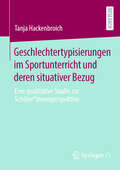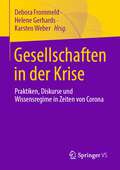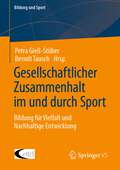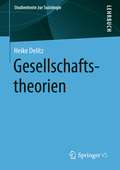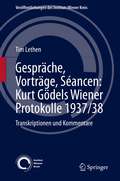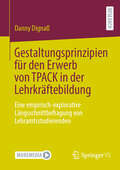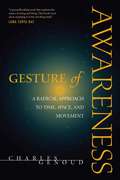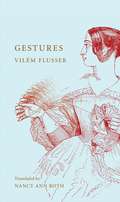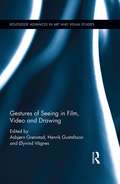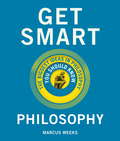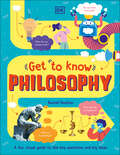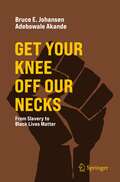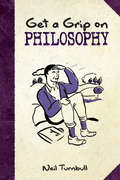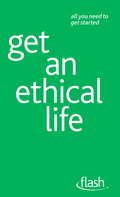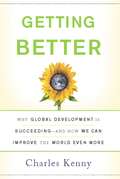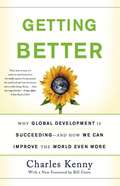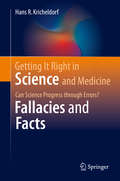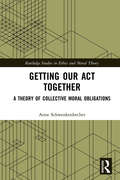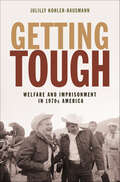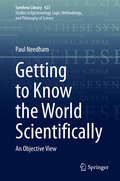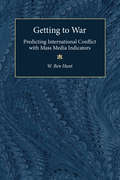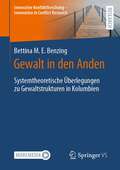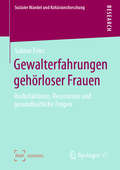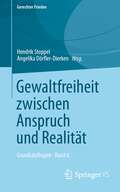- Table View
- List View
Geschlechtertypisierungen im Sportunterricht und deren situativer Bezug: Eine qualitative Studie zur Schüler*innenperspektive
by Tanja HackenbroichLehrkräfte sind dazu verpflichtet, allen Schüler*innen eine gleichberechtige Teilhabe am Sportunterricht zu ermöglichen. Neben einer gut ausgebildeten Genderkompetenz bedarf es dafür der genauen Kenntnis der Schüler*innenperspektive. Allerdings sind die subjektiven Relevanzsetzungen sowie geschlechtsbezogenen Deutungen von Schüler*innen im Sportunterricht bislang wenig erforscht. Die vorliegende Studie zielt folglich darauf ab, die von Schüler*innen im Sportunterricht aktualisierten Geschlechtertypisierungen sowie deren situativen Bezug zu rekonstruieren. Die Studie zeigt, dass Schüler*innen Geschlechtertypisierungen in Bezug auf sportliches Können, sportliches Wollen und unterrichtliches Müssen anlässlich spezifischer, wenngleich typischer sportunterrichtlicher Situationen aktualisieren. Da jene Geschlechtertypisierungen mit Anerkennung oder Abwertung einhergehen, lässt sich überdies eine im Sportunterricht bestehende Anerkennungshierarchie nachzeichnen. Demzufolge ist keinesfalls davon auszugehen, dass Sportunterricht den an ihn gestellten geschlechtsbezogenen Ansprüchen gerecht wird. Statt Gleichberechtigung aller Schüler*innen ist vielmehr immense geschlechtsbezogene Benachteiligung von Mädchen im Sportunterricht zu konstatieren.
Gesellschaften in der Krise: Praktiken, Diskurse und Wissensregime in Zeiten von Corona
by Helene Gerhards Debora Frommeld Karsten WeberDas Virus SARS-CoV-2 und die dadurch ausgelöste Coronapandemie haben die Gesellschaft in einen Krisenmodus versetzt: Die Coronapandemie hat tiefgreifenden Einfluss auf den Alltag von Subjekten in allen Lebenslagen genommen, gesellschaftliche Bedingungen verändert und institutionelle Veränderungen angestoßen. Ob das Tragen eines Mund-Nasen-Schutzes, die virtuelle Kommunikation als neuer Standard in Arbeitsumgebungen oder Regelungen zu Impfungen und öffentlichem Gesundheitsschutz – gesellschaftliche Praktiken und Diskurse haben sich verändert sowie Wissensregime etabliert, die einer genaueren multidisziplinären Analyse würdig sind. Der Band versammelt Beiträge zu Bereichen, die von einem krisenbedingten Wandel betroffen sind: Alter, Bildung, Emotion, Freiheit, Geschlecht, Gesundheit, Digitalisierung, Körper, Medizin und Versorgung sowie Sorgebeziehungen.
Gesellschaftlicher Zusammenhalt im und durch Sport: Bildung für Vielfalt und Nachhaltige Entwicklung (Bildung und Sport #25)
by Berndt Tausch Petra Gieß-StüberGesellschaften, die durch globale Entwicklungen, Migration und sozialen Wandel geprägt sind, stehen vor Herausforderungen, die den Zusammenhalt und Nachhaltige Entwicklung beeinflussen. Das Buch bietet eine Sammlung von Fachtexten, die aus sozialwissenschaftlichen, psychologischen und migrationspädagogischen Ansätzen abgeleitet sind. Für Akteur*innen der Sportpolitik definiert es strukturelle Voraussetzungen für ein ganzheitliches sportbezogenes Bildungsverständnis. Pädagog*innen in unterschiedlichen Sportsettings erhalten wichtige Impulse, um Bildungsprozesse systematisch anzuregen und gesellschaftlichen Zusammenhalt durch Sport zu fördern. Wenn der Sport eine Ressource für soziale Kontakte, die Erfahrung von Zugehörigkeit und erfülltes Freizeitleben für Alle sein soll, dann sind transformatorische Prozesse notwendig. Die Beiträge zeigen auf, wie durch Organisationsentwicklung, Netzwerke und Bildungslandschaften, vielfaltsgerechte Sportdidaktik sowie durch Qualifizierung im Kontext von Sport for Development (SfD)-Programmen die Transformation gelingen kann.
Gesellschaftstheorien (Studientexte zur Soziologie)
by Heike DelitzIn welcher Gesellschaft leben wir, und vor allem: was ist überhaupt eine „Gesellschaft“? Das Lehrbuch führt in die zuletzt genannte Grundfrage der Soziologie ein – in die diversen Antworten und in den Streit um den Gesellschaftsbegriff. Es geht bei diesem Begriff um eine der konzeptionellen Grundlagen des Faches: Ob ein eher theoretischer oder empirischer Schwerpunkt soziologischer Forschung verfolgt wird, eine Antwort auf die Frage nach der Gesellschaft liegt implizit oder explizit vor. Oder präziser, sie muss permanent erarbeitet werden – und sei es im vehementen Versuch, sich des Gesellschaftsbegriffes zu entledigen und Akteure, Relationen oder Kollektive an dessen Stelle zu setzen.
Gespräche, Vorträge, Séancen: Transkriptionen und Kommentare (Veröffentlichungen des Instituts Wiener Kreis #31)
by Tim LethenThis book provides detailed transcriptions of two notebooks written by Kurt Gödel in Vienna in 1937/38 in the nearly forgotten Gabelsberger shorthand system. The first of these notebooks, simply entitled as the Protokoll-book, contains notes on conversations Gödel had with people like Rudolf Carnap, Rose Rand, Friedrich Waismann, Else Frenkel-Brunswik, and many others who were—at least to some degree—connected to the Vienna Circle. It also covers detailed descriptions of the regular meetings organized by Edgar Zilsel. The second notebook includes notes on a series of lectures given at the Vienna Psychological Institute, which was led by Karl Bühler at the time. Both notebooks are part of Gödel’s huge Nachlass kept at the Institute for Advanced Study in Princeton, which consists of literally thousands of stenographic pages covering logic and the foundations of mathematics, philosophy, physics, and theology. The now transcribed and commented notes reveal a very personal side of Gödel which has—to a large extent—been unknown to a mainly scientific-oriented audience. The book is of interest to people wanting to learn about Gödel’s personal background in Vienna in the late 1930s as well as his keen interest in philosophy, psychology, and parapsychology.
Gestaltungsprinzipien für den Erwerb von TPACK in der Lehrkräftebildung: Eine empirisch-explorative Längsschnittbefragung von Lehramtsstudierenden
by Danny DignaßDie voranschreitende Digitalisierung unserer Lebenswelt stellt die traditionelle Lehrkräfteausbildung in Deutschland vor die Herausforderung, sich den Veränderungen anzupassen und den steigenden Anforderungen im Umgang mit digitalen Medien gerecht zu werden. Dieses Buch konzentriert sich auf die Entwicklung und Förderung von digitalisierungsbezogenen Kompetenzen und Einstellungen sowie der unterrichtlichen Nutzungshäufigkeit digitaler Medien bei Lehramtsstudierenden. Am konkreten Beispiel der Technischen Universität Dortmund werden dabei Zusammenhänge zwischen spezifischen Gestaltungsprinzipien digitalisierungsbezogener Lehr-Lernangebote für angehende Lehrkräfte und dem TPACK-Konzept erforscht. Die Untersuchung basiert auf einer umfassenden Auswertung quantitativer und qualitativer Daten aus den Sommersemestern 2021 und 2023. Im Zentrum dieser Arbeit steht die Bereitstellung einer evidenzbasierten Orientierung für die Vorbereitung von Lehramtsstudierenden auf einen effektiven Einsatz digitaler Medien in schulischen Lehr-Lernprozessen in der Digitalität.
Gesture of Awareness: A Radical Approach to Time, Space, and Movement
by Charles GenoudFrom a major mind of Buddhism today comes this unique philosophical work, which hearkens back to the classical verse-form, but in a modern voice that speaks directly to the twenty-first century reader and practitioner. Gesture of Awareness involves a fascinating philosophical exploration of time, space, and movement but at the same time is a manual for an embodied "practice of exploration." Genoud is very well known to the leading lights of Buddhism today. He and his work are continuingly praised for their invention and importance. Well-versed in French and continental philosophies, as well as Eastern thought, he has produced a work that will be welcomed as a Buddhist book and a noteworthy contribution to the larger philosophical community.
Gestures
by Vilém FlusserThroughout his career, the influential new media theorist Vilém Flusser kept the idea of gesture in mind: that people express their being in the world through a sweeping range of movements. He reconsiders familiar actions—from speaking and painting to smoking and telephoning—in terms of particular movement, opening a surprising new perspective on the ways we share and preserve meaning. A gesture may or may not be linked to specialized apparatus, though its form crucially affects the person who makes it.These essays, published here as a collection in English for the first time, were written over roughly a half century and reflect both an eclectic array of interests and a durable commitment to phenomenological thought. Defining gesture as &“a movement of the body or of a tool attached to the body for which there is no satisfactory causal explanation,&” Flusser moves around the topic from diverse points of view, angles, and distances: at times he zooms in on a modest, ordinary movement such as taking a photograph, shaving, or listening to music; at others, he pulls back to look at something as vast and varied as human &“making,&” embracing everything from the fashioning of simple tools to mass manufacturing. But whatever the gesture, Flusser analyzes it as the expression of a particular form of consciousness, that is, as a particular relationship between the world and the one who gestures.
Gestures of Seeing in Film, Video and Drawing (Routledge Advances in Art and Visual Studies)
by Øyvind Vågnes Asbjørn Grønstad Henrik GustafssonThe first book of its kind, Gestures of Seeing in Film, Video and Drawing engages broadly with the often too neglected yet significant questions of gesture in visual culture. In our turbulent mediasphere where images – as lenses bearing on their own circumstances – are constantly mobilized to enact symbolic forms of warfare and where they get entangled in all kinds of cultural conflicts and controversies, a turn to the gestural life of images seems to promise a particularly pertinent avenue of intellectual inquiry. The complex gestures of the artwork remain an under-explored theoretical topos in contemporary visual culture studies. In visual art, the gestural appears to be that which intervenes between form and content, materiality and meaning. But as a conceptual force it also impinges upon the very process of seeing itself. As a critical and heuristic trope, the gestural galvanizes many of the most pertinent areas of inquiry in contemporary debates and scholarship in visual culture and related disciplines: ethics (images and their values and affects), aesthetics (from visual essentialism to transesthetics and synesthesia), ecology (iconoclastic gestures and spaces of conflict), and epistemology (questions of the archive, memory and documentation). Offering fresh perspectives on many of these areas, Gestures of Seeing in Film, Video and Drawing will be intensely awaited by readers from and across several disciplines, such as anthropology, linguistics, performance, theater, film and visual studies.
Get Smart: The Big Ideas You Should Know (genius test)
by Marcus WeeksCan you master the ideas of Plato, Kant, Nietzsche and Sartre? What does 'I think, therefore I am' really mean? Do you know the arguments for and against the existence of god? And what do the great philosophers tell us about knowledge and truth, good and evil? Take Get Smart: Philosophy and learn to think and talk like history's greatest philosophical minds. Packed with bite-sized briefings, shortcuts and bluffs, Get Smart: Philosophy demystifies 50 key philosophical concepts and provides you with all you need to speak out about the very biggest ideas, including: The nature of reality; Free will; Ethics; Philosophy of the mind; Justice and liberty; Relativism; Utilitarianism; Capitalism and democracy; Paradoxes and fallacies; The Social Contract; Existentialism; Metaphysics; Chinese philosophy; Beauty and art; Artificial intelligence; Human rights; Analytic, Linguistic and Continental philosophy . . . and many more.
Get To Know: A Fun, Visual Guide to the Key Questions and Big Ideas (Get to Know )
by Rachel PoultonA fun, visual guide for kids about the tricky topic of philosophy: what it covers, why it&’s important, and who the big philosophers are!The instinct to question is shared by both children and philosophers, and kids start to question the world around them at an early age. Children aged 7+ can begin to understand how critical thinking works, from the smallest details to the largest concepts, both children and philosophers approach the world with an enquiring mind, and accept little at face value. Get to know: Philosophy will encourage and magnify children&’s inquisitive side, using engaging thought experiments, real-world examples and allegories. Learning about philosophy doesn&’t have to be tricky either – this guide features fun activities and quizzes, bright pages and breaks the information into bite-size chunks so that it&’s easy to digest. Inside the pages of this philosophy book for kids, you&’ll find:- A wide-ranging and accessible introduction to philosophy, with bright, informative illustrations alongside engaging text, making key information easy to digest.- A topic-by-topic structure, giving an in-depth introduction to the world of philosophy.- The cornerstones of philosophy, including the mind, logic, morality, politics, and religion.- Lively and colorful diagrams that present information in an engaging way.Featuring diagrams, colorful illustrations, and interactive activities, Get to know: Philosophy is perfect for budding philosophers, and every child who asks the biggest questions.The guide covers the cornerstones of philosophical thought in an accessible way, giving readers a contemporary introduction to one of the most ancient subjects, while familiarising young minds with critical thinking and important patterns of logic. More in the SeriesGet to know: Philosophy is the second title in DK&’s Get to know series, which tackles tricky topics for kids by breaking down information into bite-sized chunks. If you enjoyed this introduction to philosophy, why not try other titles in the series? Introduce children to the ins and outs of money with Get to know: Money, and learn how to save it, keep it safe and grow it!
Get Your Knee Off Our Necks: From Slavery to Black Lives Matter
by Bruce E. Johansen Adebowale AkandeThe death of George Floyd on May 25, 2020, and the ensuing trial of Derek Chauvin for murder a year later has rubbed raw the bloodiest stain on the United States’ history and its world reputation. The nine minutes and 29 seconds during which Chauvin’s knee crushed the spark of life out of Floyd was not unusual in the history of the United States. Before the U.S. Civil War, slaves were routinely beaten to death for disobeying orders or running away, then often lynched. In roughly two centuries, Blacks have achieved nominal freedom. But, as this book’s opening chapter and expert essays that follow indicate, freedom has been conditional based on inequity of wealth, social, and legal discrimination. None of this is new in the United States; what is new is the number of people rising up in protest, a figure in the millions around the world after Floyd’s murder.This book supplies a readable, scholarly account of recent issues in race and racism in the United States that will be useful for general readers, undergraduate students, and their professors. It will be useful in many fields, including Black studies, other ethnic pursuits, United States history, law, criminal justice, intercultural communication, et al. The work contains a powerful historical narrative followed by several important, essays on subjects including George Floyd’s murder, the rise of the Black Lives Matter movement and many other victims of systematic racism.
Get a Grip on Philosophy: New Edition (Get A Grip On...ser.)
by Neil TurnbullDon't know Socrates from Sartre? Can't handle Kant? This lively introduction traces the history of Western philosophy, from the works of Plato and Aristotle to those of Simone de Beauvoir and Michel Foucault. Easy-to-understand explanations cover all branches of philosophy, illustrating changing interpretations of the meaning of life and outlining key ideas of famous thinkers.Author Neil Turnbull offers memorable examples and analogies, injecting a playful modern tone into potentially obscure subjects. Loaded with sidebars, comic illustrations, and bulleted points, the book's reader-friendly format offers digestible portions from a banquet of philosophical traditions, including thought-provoking tastes of works by Aquinas, Descartes, Wittgenstein, Hume, Heidegger, Nietzsche, and many others.
Get an Ethical Life: Flash
by Mac BrideGet an Ethical Life is a short, simple and to-the-point guide to the basic principles behind ethical, sustainable living, in a few short steps. Even if you are completely new to this way of life, in just 96 pages you will discover some essential ideas and strategies that will make a huge difference if you want to live a more sustainable, balanced life - without having to spend months learning how.
Get an Ethical Life: Flash
by Peter MacBrideGet an Ethical Life is a short, simple and to-the-point guide to the basic principles behind ethical, sustainable living, in a few short steps. Even if you are completely new to this way of life, in just 96 pages you will discover some essential ideas and strategies that will make a huge difference if you want to live a more sustainable, balanced life - without having to spend months learning how.
Getting Better
by Charles KennyAs the income gap between developed and developing nations grows, so grows the cacophony of voices claiming that the quest to find a simple recipe for economic growth has failed. Getting Better, in sharp contrast, reports the good news about global progress. Economist Charles Kenny argues against development naysayers by pointing to the evidence of widespread improvements in health, education, peace, liberty--and even happiness. Kenny shows how the spread of cheap technologies, such as vaccines and bed nets, and ideas, such as political rights, has transformed the world. He also shows that by understanding this transformation, we can make the world an even better place to live. That's not to say that life is grand for everyone, or that we don't have a long way to go. But improvements have spread far, and, according to Kenny, they can spread even further.
Getting Better: Why Global Development Is Succeeding--And How We Can Improve the World Even More
by Charles KennyAs the income gap between developed and developing nations grows, so grows the cacophony of voices claiming that the quest to find a simple recipe for economic growth has failed. Getting Better, in sharp contrast, reports the good news about global progress. Economist Charles Kenny argues against development naysayers by pointing to the evidence of widespread improvements in health, education, peace, liberty--and even happiness. Kenny shows how the spread of cheap technologies, such as vaccines and bed nets, and ideas, such as political rights, has transformed the world. He also shows that by understanding this transformation, we can make the world an even better place to live. That's not to say that life is grand for everyone, or that we don't have a long way to go. But improvements have spread far, and, according to Kenny, they can spread even further.
Getting It Right in Science and Medicine
by Hans R. KricheldorfThis book advocates the importance and value of errors for the progress of scientific research! Hans Kricheldorf explains that most of the great scientific achievements are based on an iterative process (an 'innate self-healing mechanism'): errors are committed, being checked over and over again, through which finally new findings and knowledge can arise. New ideas are often first confronted with refusal. This is so not only in real life, but also in scientific and medical research. The author outlines in this book how great ideas had to ripen over time before winning recognition and being accepted. The book showcases in an entertaining way, but without schadenfreude, that even some of the most famous discoverers may appear in completely different light, when regarding errors they have committed in their work. This book is divided into two parts. The first part creates a fundament for the discussion and understanding by introducing important concepts, terms and definitions, such as (natural) sciences and scientific research, laws of nature, paradigm shift, and progress (in science). It compares natural sciences with other scientific disciplines, such as historical research or sociology, and examines the question if scientific research can generate knowledge of permanent validity. The second part contains a collection of famous fallacies and errors from medicine, biology, chemistry, physics and geology, and how they were corrected. Readers will be astonished and intrigued what meanders had to be explored in some cases before scientists realized facts, which are today's standard and state-of-the-art of science and technology. This is an entertaining and amusing, but also highly informative book not only for scientists and specialists, but for everybody interested in science, research, their progress, and their history!
Getting Our Act Together: A Theory of Collective Moral Obligations (Routledge Studies in Ethics and Moral Theory)
by Anne SchwenkenbecherTogether we can often achieve things that are impossible to do on our own. We can prevent something bad from happening, or we can produce something good, even if none of us could do it by ourselves. But when are we morally required to do something of moral importance together with others? This book develops an original theory of collective moral obligations. These are obligations that individual moral agents hold jointly but not as unified collective agents. The theory does not stipulate a new type of moral obligation but rather suggests that to think of some of our obligations as joint or collective is the best way of making sense of our intuitions regarding collective moral action problems. Where we have reason to believe that our efforts are most efficient as part of a collective endeavor, we may incur collective obligations together with others who are similarly placed as long as we are able to establish compossible individual contributory strategies towards that goal. The book concludes with a discussion of 'massively shared obligations' to major-scale moral problems such as global poverty. Getting Out Act Together: A Theory of Collective Moral Obligations will appeal to researchers and advanced students working in moral, political and social philosophy, philosophy of action, social epistemology and philosophy of social science.
Getting Tough: Welfare and Imprisonment in 1970s America (Politics and Society in Modern America)
by Julilly Kohler-HausmannThe politics and policies that led to America's expansion of the penal system and reduction of welfare programsIn 1970s America, politicians began "getting tough" on drugs, crime, and welfare. These campaigns helped expand the nation's penal system, discredit welfare programs, and cast blame for the era's social upheaval on racialized deviants that the state was not accountable to serve or represent. Getting Tough sheds light on how this unprecedented growth of the penal system and the evisceration of the nation's welfare programs developed hand in hand. Julilly Kohler-Hausmann shows that these historical events were animated by struggles over how to interpret and respond to the inequality and disorder that crested during this period.When social movements and the slowing economy destabilized the U.S. welfare state, politicians reacted by repudiating the commitment to individual rehabilitation that had governed penal and social programs for decades. In its place, they championed strategies of punishment, surveillance, and containment. The architects of these tough strategies insisted they were necessary, given the failure of liberal social programs and the supposed pathological culture within poor African American and Latino communities. Kohler-Hausmann rejects this explanation and describes how the spectacle of enacting punitive policies convinced many Americans that social investment was counterproductive and the "underclass" could be managed only through coercion and force.Getting Tough illuminates this narrative through three legislative cases: New York's adoption of the 1973 Rockefeller drug laws, Illinois's and California's attempts to reform welfare through criminalization and work mandates, and California's passing of a 1976 sentencing law that abandoned rehabilitation as an aim of incarceration. Spanning diverse institutions and weaving together the perspectives of opponents, supporters, and targets of punitive policies, Getting Tough offers new interpretations of dramatic transformations in the modern American state.
Getting to Know the World Scientifically: An Objective View (Synthese Library #423)
by Paul NeedhamThis undergraduate textbook introduces some fundamental issues in philosophy of science for students of philosophy and science students. The book is divided into two parts. Part 1 deals with knowledge and values. Chap. 1 presents the classical conception of knowledge as initiated by the ancient Greeks and elaborated during the development of science, introducing the central concepts of truth, belief and justification. Aspects of the quest for objectivity are taken up in the following two chapters. Moral issues are broached in Chap. 4, which discusses some aspects of the use and abuse of science, taking up the responsibilities of scientists in properly conducting their business and decision-makers in their concerns with the import of science for society. Part 2 contrasts the view of scientific progress as the rejecting of old hypotheses and theories and replacing them with new ones, represented by Karl Popper, with the conception of progress as accumulating knowledge, saving as much as possible from older theories, represented by Pierre Duhem. A concluding chapter defends the natural attitude of taking the theories of modern science to be literally true, i.e. realism, in the face of arguments drawn partly from the history of scientific progress in criticism of this stance.
Getting to War: Predicting International Conflict with Mass Media Indicators
by W. Ben HuntThis book shows how to predict wars. More specifically, it tells us how to anticipate in a timely fashion the scope and extent of interstate conflict. By focusing on how all governments--democratic or not--seek to secure public support before undertaking risky moves such as starting a war, Getting to War provides a methodology for identifying a regime's intention to launch a conflict well in advance of the actual initiation. The goal here is the identification of leading indicators of war. Getting to War develops such a leading political indicator by a systematic examination of the ways in which governments influence domestic and international information flows. Regardless of the relative openness of the media system in question, we can accurately gauge the underlying intentions of those governments by a systematic analysis of opinion-leading articles in the mass media. This analysis allows us to predict both the likelihood of conflict and what form of conflict--military or diplomatic/economic--will occur.
Gewalt in den Anden: Systemtheoretische Überlegungen zu Gewaltstrukturen in Kolumbien (Innovative Konfliktforschung – Innovation in Conflict Research)
by Bettina M.E. BenzingDas Buch beschäftigt sich mit den langfristigen sozialstrukturellen Auswirkungen von Gewaltkonflikten in Postkonfliktgesellschaften, eines der aktuellsten Forschungsthemen der Friedens- und Konfliktforschung. Basierend auf empirischer Forschung in verschiedenen Landesteilen Kolumbiens wird argumentiert, dass sich die unter Gewalteinfluss entstandenen Sozialstrukturen primär durch Misstrauensmechanismen in der Gesellschaft auszeichnen, wodurch sich einerseits Gewalt als Kommunikationsmuster auch nach Friedensschlüssen weiter erhält und reproduziert sowie andererseits sich exkludierende Strukturen für marginalisierte Bevölkerungsteile ausbilden, die einem Frieden nachhaltig entgegenwirken. Mittels eines systemtheoretischen Ansatzes macht das Buch daher ein Angebot zum besseren Verständnis anhaltender Gewalt in Postkonfliktgesellschaften.
Gewalterfahrungen gehörloser Frauen: Risikofaktoren, Ressourcen und gesundheitliche Folgen (Sozialer Wandel und Kohäsionsforschung)
by Sabine FriesDie Erkenntnis, dass gehörlose Frauen von verschiedenen Formen von Gewalt und ihren Folgen genauso oder sogar weit häufiger betroffen sein können als andere Frauen, ist in der Öffentlichkeit kaum bekannt. Ein stark erhöhtes Risiko für Gewalterfahrungen ergibt sich bei gehörlosen Frauen vor allem aufgrund einer ausgeprägten gesellschaftlichen Isolation. Ein weiterer wesentlicher Risikofaktor für die im Vergleich zu Frauen mit und ohne Behinderungen überdurchschnittlich hohe Gewaltbetroffenheit gehörloser Frauen ist ihre häufig alternativlose Einbindung in die Gehörlosengemeinschaft. Dies verweist darauf, dass unsere Gesellschaft bislang daran gescheitert ist, gehörlose Menschen ausreichend zu integrieren, und diese so marginalisiert hat, dass sie von der Mehrheitsgesellschaft weitgehend unbemerkt zu Tätern und Opfern werden. Nicht zuletzt hat Gewalt gegen gehörlose Frauen komplexe und weitreichende gesundheitliche Folgen. Das Gesundheitssystem nimmt deshalb eine Schlüsselrolle für die Prävention, Weitervermittlung und Intervention bei Gewalt gegen gehörlose Frauen und ihre Kinder ein.
Gewaltfreiheit zwischen Anspruch und Realität: Grundsatzfragen • Band 6 (Gerechter Frieden)
by Angelika Dörfler-Dierken Hendrik StoppelDas Bekenntnis zum Weg der Gewaltfreiheit nimmt in der Kundgebung der EKD-Synode 2019 „Kirche auf dem Weg der Gerechtigkeit und des Friedens“ den ersten Rang unter den Aussagen zum Thema Frieden ein. Aber der kirchliche Diskurs kennt auch eine zweite Option, die unter bestimmten Bedingungen notwendig werden kann: den Gebrauch von „rechtserhaltender Gewalt“, der gerade den Frieden herstellen oder wahren soll. In diesem Spannungsfeld stehen die kirchliche Militärseelsorge und Soldat*innen mit kirchlicher Bindung. Die verschiedenen Voten und deren Grundlegungen und Konsequenzen werden in diesem Band diskutiert.
